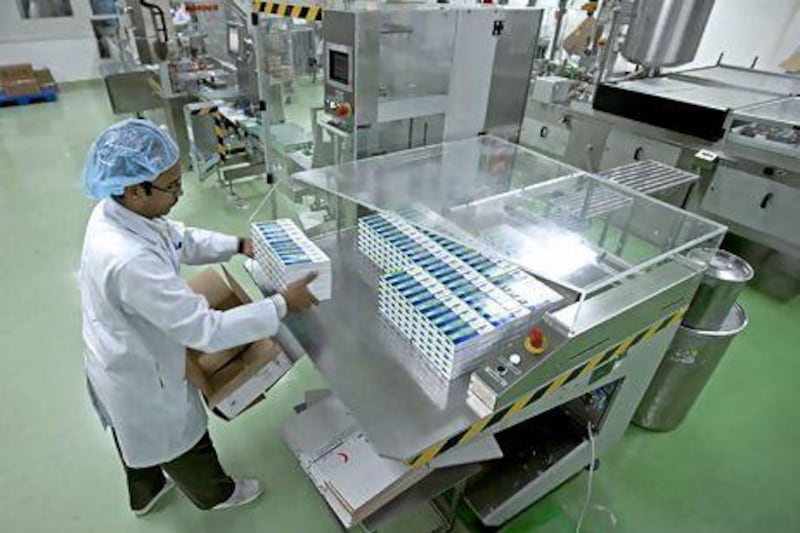Rising healthcare spending as well as poor lifestyles and chronic illnesses are helping to brighten outlooks for UAE drugmakers and the medical leasing sector.
Julphar, the Ras Al Khaimah-based pharmaceuticals company expects a 25 per cent increase in sales this year as it seeks to double its market share in the UAE.
The company, also known as Gulf Pharmacuetical Industries, forecasts sales of Dh1.4 billion this year, said Ali Moussa, the senior director of sales and marketing.
It generated Dh360 million in turnover in the first quarter, a 10 per cent rise over the same period last year.
Julphar is planning to launch as many as 15 new products this years including cardiovascular medicines and antibiotics and plans to enter into a joint venture with a manufacturer in Algeria by next year and with another in Saudi Arabia by 2017.
The company also hopes to play a role in national regulatory affairs and policy development.
"Increased funding will result in the advancement of the quality of goods and services in addition to the regulatory environment," said Mr Mousa.
But it was the private sector that drove first-quarter sales, up 22.2 per cent over last year. That includes direct sales to consumers of over the counter medicines and through private physicians and private hospitals.
In 2011, overall public and private healthcare spending in the UAE was Dh36 billion, according to official data, and the private sector's share is set to rise over the next two years.
"A large part of the spending will come from government but also the private sector, which has started focusing on hospitals and high-end care," said Azad Moopen, the owner of DM Healthcare in Dubai. "In the last 10 years the private sector has increased its contribution to health care spend."
A rising number of expats and the expansion of health insurance coverage is making specialised care more affordable, he said.
In the next five years, DM Healthcare expects to open three hospitals, including two under its high end Medcare brand and a 120-bed hospital under its budget brand Aster in Dubai. It is also scouting for a location to open a fourth hospital in Abu Dhabi in the next five years.
More clinics and hospitals are likely to be a boon for the medical equipment leasing sector.
Kai Trompeter, a managing partner at the Dubai-based Gulf Finance Medical Leasing, predicts "that with the projected Dh40bn spend by 2015 within the UAE's healthcare sector, medical leasing both domestically and regionally will grow exponentially as the concept is fully understood and adopted".
The company's UAE sales are driven by primary and specialised care services in Abu Dhabi, Al Ain, Dubai and Sharjah.
"With the introduction of mandatory health insurance for Dubai pending, we believe there will be a significant uplift in private investment in the sector, which in turn will drive demand from new start up clinics and hospitals for example," he said.
"We expect the medical leasing market here in the UAE to double every year over the next two years and be valued in the region of Dh300 million by 2015," Mr Trompeter said. "Key drivers to this growth are an increasing older population, rising prevalence of lifestyle diseases such as obesity, diabetes and hypertension as well as the speed of new medical technologies coming to the market."





